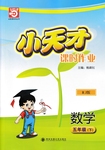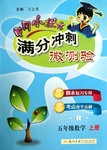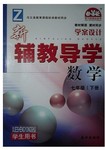题目内容
I often read of incidents of misunderstanding or conflict. I’m left 1 . Why do these people create mistrust and problems, especially with those from other 2 ?
I was growing up in Kuala Lumpur in the early 1960s, 3 children from different races and religions played and studied 4 in harmony. At that time my family lived a stone’s 5 from Ismail’s. And no one was bothered that Ismail was a Malay Muslim and I was an Indian Hindu—we just 6 our differences. Perhaps, our elders had not filled our heads with unnecessary advice, well 7 or otherwise.
We were nine when we became friends. During the school holidays, we’d 8 the countryside on our bicycles, hoping to 9 the unexpected. At times Ismail would accompany my family as we made a rare shopping trip to town. We would be glad of his 10 .
When I was twelve, my family moved to Johor. Ismail’s family later returned to their village, and I 11 touch with him.
One spring afternoon in 1983, I stopped a taxi in Kuala Lumpur. I 12 my destination. The driver acknowledged my 13 but did not move off. Instead, he looked 14 at me. “Raddar?” he said, using my childhood nickname. I was astonished at being so 15 addressed (称呼). Unexpectedly! It was Ismail! Even after two 16 we still recognized each other. Grasping his shoulder, I felt a true affection, something 17 to describe.
If we can allow our children to be 18 without prejudice, they’ll build friendships with people, regardless of race or religion, who will be 19 their side through thick and thin. On such friendships are societies built and 20 we can truly be, as William Shakespeare once wrote,“we happy few, we band of brothers”.
1.A. interested B. pleased C. puzzled D. excited
2.A. parties B. cities C. villages D. races
3.A. why B. which C. how D. when
4.A. together B. around C. alone D. apart
5.A. drop B. throw C. move D. roll
6.A. refused B. made C. sought D. accepted
7.A. paid B. meant C. preserved D. treated
8.A. explore B. search C. discover D. desert
9.A. get through B. deal with C. come across D. take away
10.A. arrival B. choice C. effort D. company
11.A. lost B. gained C. developed D. missed
12.A. stated B. ordered C. decided D. chose
13.A. attempts B. instructions C. opinions D. arrangements
14.A. anxiously B. carelessly C. disappointedly D. fixedly
15.A. familiarly B. strangely C. fully D. coldly
16.A. departures B. months C. years D. decades
17.A. possible B. funny C. hard D. clear
18.A. them B. themselves C. us D. ourselves
19.A. from B. by C. with D. against
20.A. still B. otherwise C. then D. instead
1.C
2.D
3.D
4.A
5.B
6.D
7.B
8.A
9.C
10.D
11.A
12.A
13.B
14.D
15.A
16.D
17.C
18.B
19.B
20.C
【解析】
试题分析:本文叙述了作者儿时的伙伴失去联系二十年之后又相见的故事。作者小时候曾在吉隆坡生活过,在那里,他认识了信奉伊斯兰教的Ismail,自己是一个 印度教徒。因为他们没有种族和信仰差异的偏见,他们成为了好朋友。后来作者搬到了Johor,从此,他们失去了联系。二十年后,他们在吉隆坡有相遇,仍然很亲密。所以说,作者认为我们应教育孩子没有偏见,与人建立起来友谊时不要考虑种族与地区。
1.考查形容词及上下文的呼应。interested 感兴趣的,pleased满意的,puzzled困惑的,excited激动地,兴奋地。根据后文问Why do these people create mistrust and problems为什么人们会不信任,会产生很多问题,说明作者疑惑。句意:我感到困惑。故选C 。
2.考查名词及上下文的呼应。Parties聚会,党派,cities城市,villages村庄races种族。根据后文的children from different races and religions played来自不同地区不同种族的孩子在一起玩,这句的句意为:尤其来自其他种族的人们为什么产生不信任和问题?故选D。
3.考查连词及上下文的呼应。Why为什么,做原因状语, which在定语从句中作主语,宾语或表语, how如何,表示方式状语, when时间状语。空格前的in the early 1960s是先行词,表示时间,空格后的定语从句中,不缺少主语和宾语,所以选时间状语when。句意:在20世纪60年代早期我成长在吉隆坡,当时来自不同的种族和宗教的孩子们,一起和谐的玩耍和奏学习。故选D。
4.考查副词及上下文的呼应。 Together一起,around 在......周围, alone独自地, apart分离的。根据后文we became friends作者和Ismail信奉不同的教派,后来成为好朋友,说明他们在一起玩。句意:当时来自不同的种族和宗教的孩子们,一起和谐的玩耍和奏学习故选A。
5.考查动词及上下文的呼应。drop下降 ;throw投,抛;move移动; roll卷,滚动。a stone’s throw一箭之遥,离得非常近。作者家与Ismail家应是非常近,后来成为了好朋友。句意:那时候,我家离Ismail家非常近。故选B。
6.考查动词及上下文的呼应。refused拒绝; made 做,使 ;sought 寻找;accepted 接受。
后文的our elders had not filled our heads with unnecessary advice我们的长辈没有给我们灌输种族差异这些不必要的建议,所以我能接受种族差异。句意:我们只是接受了我们的差异。故选D。
7.考查动词及上下文的呼应。paid 支付;meant 意味;打算;preserved 保存,保护;treated对待,治疗。 well meant 好,善意的。根据前文our elders had not filled our heads with unnecessary advice, 我们的长辈没有给我们灌输种族差异这些不必要的建议,所以是善意的建议。句意:也许,我们的长辈给我们灌输不必要的建议,所谓善意的或其他的东西。故选B。
8.考查动词及上下文的呼应。 explore 探索,探险;search 搜索,搜寻; discover 发现,desert沙漠,遗弃。句意为:放假期间我们骑着自行车在乡村玩耍,所以是在乡村探险。故选A。
9.考查短语及上下文的呼应。get through 通过,度过,完成,到达;deal with 处理,设计;
come across 偶然遇到;take away 带走,拿走。根据句意we’d explore the countryside on our bicycles, hoping to 9 the unexpected. 我们骑着自行车,在乡村玩耍,希望遇到意想不到的事。故选C。
10.考查名词及上下文的呼应。arrival 到达; choice 选择;effort 努力;company 公司,陪伴。
根据前文At times Ismail would accompany my family as we made a rare shopping trip to town. 有时Ismail陪着我们一家去城里进行罕见的购物之旅,所以说有他的陪伴。句意:我们乐意他的陪伴。故选D
11.考查动词及上下文的呼应。lost 遗失,失去; gained 获得,得到; developed 发展; missed
错过,想念。根据前文my family moved to Johor. Ismail’s family later returned to their village我家搬到Johor,Ismail 家回到了他们村,我们分开了。后文又有we still recognized each other我们仍能认出彼此。说明他们分手后就失去了联系。句意:后来 Ismail一家搬回来他们村,我就和他失去了联系。故选A
12.考查动词及上下文的呼应。stated 陈述,阐明; ordered 命令,点餐; decided 决定 ; chose
选择。空格后面是目的地,根据前文的I stopped a taxi in Kuala Lumpur.我叫住一辆出租车,说明作者跟司机说出自己的目的地。句意:我说了我的目的地。故选A。
13.考查名词及上下文的呼应。attempts 企图,尝试; instructions 指令,说明; opinions 意见,评价;arrangements 安排,整理。空格后是司机没有开车离开,所以空格前应是司机确认了我说的目的地。句意:司机承认我的指令,但没有离开。故选B。
14.考查副词及上下文的呼应。anxiously 不安的,忧虑的; carelessly 粗心的,不注意的; disappointedly 失望地; fixedly 固定的,不动地。根据后文It was Ismail! 知道司机是作者的朋友Ismail,多年不见,Ismail应仔细地,不动地看着作者,问道你是Raddar吗?句意:然而,他目不转睛的看着我。故选D。
15.考查副词及上下文的呼应。familiarly 亲密的; strangely 奇怪地; fully 充分地,完全地; coldly 冷淡地。根据前文的using my childhood nickname.司机喊出作者昵称,所以作者觉得亲密。句意:我很惊讶如此亲密地称呼。故选A。
16.考查名词及上下文的呼应。departures 出发,背离; months 月份; years 年;decades十年。根据前文的I was growing up in Kuala Lumpur in the early 1960s,作者小时候生活的时代是20世纪60年代初期。One spring afternoon in 1983, 再次相遇时是1983年,所以中间相隔20多年。句意:甚至过了20年我们仍认出彼此。故选D。
17.考查形容词及上下文的呼应。possible 可能的;funny 有趣的,滑稽的;hard 辛苦的,困难的; clear清楚的。根据文章的意思,作者和儿时的朋友Ismail,20多年没见面,再次重逢,彼此又认出了对方,所以当时的情感是很难描述的。句意:我抓住他的肩膀,我感觉到真正的情谊,很难用语言来形容。
故选C。
18.考查代词及上下文的呼应。them 他们; themselves 他们自己; us 我们; ourselves我们自己。be oneself 显得自然;显得真诚;(尤指身体、精神等方面)处于正常状态。根据空格后without prejudice没有偏见,也就是自然的对待。句意为:如果我们允许孩子自然的,没有偏见的去对待别人。故选B。
19.考查介词及上下文的呼应。from 来自,从; by通过;被; with 用; against 反对;by their side, 站在他们那边,支持他们。根据后文through thick and thin患难与共,所以他们应站在他的一边,支持他。句意为:不管种族或宗教,会在他们旁边支持他们,不畏艰险。故选B。
20.考查副词及上下文的呼应。still 仍然; otherwise 否则,在其他方面;then 然后;instead然而。空格前是友谊建立的基础,空格后写我们真实的情况。所以表示先后,承接关系。句意为:友谊是建立在这样的社会,那么我们真的可以像威廉·莎士比亚曾经写道的“我们是幸福的少数,我们是兄弟”。故选C。
考点:故事类短文阅读。

 小天才课时作业系列答案
小天才课时作业系列答案 一课四练系列答案
一课四练系列答案 黄冈小状元满分冲刺微测验系列答案
黄冈小状元满分冲刺微测验系列答案 新辅教导学系列答案
新辅教导学系列答案